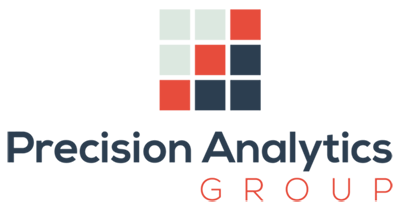First, I want to thank you for taking the time to read the second part of my trilogy. It means the world to me that you want to understand my journey. Analytics is such a big part of my life right now. It didn’t always used to be that way. When we last left off, I had just taken a big leap of faith to do government contracting back in the DC area.
The transition from COBOL and RPG programming to object-oriented programming went smoothly. I was doing helicopter simulation work, which was amazing and exciting. Again, I felt fortunate to get this shot at this programmer position. Although on paper, I had only one year of experience with some older programming languages, my new boss recognized something about my motivation to work diligently and effectively, while understanding the power and application of object-oriented programming. He surrounded me with other young professionals who could teach me the technical skills, but also groom me for how to handle my bosses and project stakeholders. He would call it my Software Engineering in the Corporate World course. I felt comfortable speaking with him about concerns and he would not tell me what to do to solve them. He would nudge me in the right direction so I could learn proper decision making. His subtle mentoring and unwavering support provided me professional confidence to learn my craft and excel with my projects. I felt like I needed to be perfect not because of pressure from my bosses, but the pressure I put on myself. I was the only black person in the office, and I wanted to represent in the most positive light possible.
At this point in my young career, I still had an internal chip on my shoulder. I kept thinking about my high school guidance counselor telling me that I was not smart enough to do this or that. Other acquaintances wondered how I got this job, insinuating that I wouldn’t be able to sustain success. Channeling my reaction to these comments drove me to being professionally efficient in this phase of my career.
My First Exposure to Analytics
I was in between projects, and I was tasked to do a case study on a business intelligence tool called Cognos. This entire effort was totally off the board for me because I had never been exposed to business intelligence let alone Cognos. I looked at this as another opportunity to fill the “toolbox”. What I mean by that is that I needed to stockpile IT skills. I needed to make myself as marketable and as useful as possible. This means job security if I took every opportunity to learn very seriously. I put my discipline for learning the languages to the test by applying it to a brand-new concept. There were so many new items here that I had to develop a foundation of what business intelligence was first. Talk about being a fish out of water, but let’s go for it, right?
My initial strategy of trying to learn the concept of business intelligence had to be adjusted. I was so used to just coding to achieve a certain goal. That would work eventually, but not at the beginning. I needed to first understand a client’s data before rushing to code something. This was different for me, and it forced me to start organizing what I was doing. Before I was just coding to make programs work that generated data. Now, I was examining that data to see if I can accomplish the goals desired by the client. This is the data that would be ingested into the Cognos software. Deep down I was wondering how many black people were involved in business intelligence. Would I see more faces of color than I did in the COBOL, RPG, and C++ fields or would it be a primarily solitary journey?
It was fun putting the case study together. I really got to understand how data was transformed into business style reports and dashboards for companies and organizations to see how they are doing. At the time, Cognos was at the pinnacle of the industry. There was not any tool better than it and it was easy to understand why. It was complex, but it could organize data and prepare it any type of reporting. I was intrigued because it made me think differently. I quickly knew that I needed more of this.
Cognos Full-Time
After bouncing around doing some random projects for a while, I sought out a position with Cognos. Boom! Score! I wanted to quench that thirst for business intelligence and analytics. One of the coolest parts of my move to Cognos was that I had black man as a boss. We shared some very candid conversations about blacks in the business intelligence world. The first piece of advice he gave me was to have a strong confidence about my technical abilities when making a first impression with a client. I cannot give a client a reason not to trust me with their business needs. Being a black male, it meant even more for me to be professionally and personally sharp. Dressing the part. Talking the part. Another piece of advice he gave me was to always maintain a consistent level of emotion no matter what occurs in the workplace. Being angry will not solve anything except escalate any situation. I needed to be happy without losing my sense of me. This was extremely hard at times, but I followed the mantra. To this day, I hear his words echoing in my head in the most trying of situations. It meant a lot that I could share some experiences with him. The most important thing I wanted to do was make a positive impact from the start. I was ready to work and ready to innovate. I did not want him to receive any blowback for hiring me, so I knew that I needed to step it up. I was not going to let him down.
As a consultant for Cognos, I got exposure to many clients and their analytic mysteries to solve. Again, I needed to start from square one. I wanted to be knowledgeable in everything so that I would never be in a position of being stumped in a complex situation. Some people say that a jack of all trades is a master of none. I beg to differ. I believe that a jack of all trades is the master of one with the one being that industry. In this case that would be the concept of business intelligence. Now I realize that Cognos represents a toolset used in business intelligence. The discipline of learning, organizing, and reporting on the data is something that really must be used all the time in business intelligence. Each toolset represents a different language used to do it. You know how much I love languages.
Time to Take Off the Training Wheels
After three months, I was completely Cognos book smart. However, I needed to earn stripes on real assignments. I remember taking a shadowing assignment in Atlanta. I just wanted not to screw up but also, I wanted to trust my instincts and help if I had the chance. The two colleagues I shadowed were the two of the best Cognos minds, but they were also the best people. They knew that I was nervous, and they helped me understand how to be a successful consultant and professional. I was able to help solve a Cognos Transformer issue, which was a huge confidence builder. I was off and running. I will never forget that experience and I still have contact with each of them today. I was introduced to many other black Cognoids, an affectionate term for Cognos consultants. I was not alone anymore. The pressure was not off though. I needed to keep carrying the flag and not let up.
I proceeded to work my tail off focusing on being efficient, thorough, and correct not just for my clients, but also for my colleagues. What is the point of just making a client happy if no one wants to work with me? Project after project, I was able to gain more and more confidence, and my colleagues were starting to gain more confidence in me as well. I was able to learn my craft while learning a variety of verticals like construction, healthcare, education, and the federal government just to name a few. This hard work translated into a Rookie of the Year at Cognos. This was given to the consultant that had the biggest positive impact on the company in that region. I had never felt so honored. However, I did not want to be a one-hit wonder. I wanted to achieve this high-level of aptitude consistently. Secretly, I wanted to go higher. Professional fear always keeps me reaching for the stars. I do not want to ever be outworked. I always want to put forth my best effort all the time.
The Decision to Make Analytics a Life Choice
There was one contract that reinforced that I wanted to be in analytics for the rest of my career: my work for the National Counterterrorism Center (NCTC). This was an amazing opportunity to contribute to the War on Terror. As part of a development team, I integrated Cognos Reporting Worldwide Incidents Tracking System (WITS), which was a database used by the US government to track terrorist acts. It included facts from publicly visible material about incidents of violence against civilians and non-combatants (including military personnel and assets outside of war-like settings). I designed and developed the analytic system as well as the reports for the program.
WITS was discontinued by the National Counterterrorism Center (NCTC) in 2012 and incorporated into the Global Terrorism Database (GTD), which can be downloaded from the University of Maryland’s National Consortium for the Study of Terrorism and Responses to Terrorism (START) website. WITS addressed two areas of concern while collecting data: it used fundamental knowledge management techniques to assure consistency in data collection, and it looked at political violence in a broader sense than what may be labeled terrorism. Casting a wider net guaranteed that all candidates were considered.
Analytics was used to develop foreign policy and I had a hand in that. This was a problem that affected the country and it made me feel honored to assist. It was so satisfying and humbling.
I have used Cognos for the better part of 17 years. I am so grateful for the data, modeling, and reporting lessons to have been afforded to learn over the years. I needed to expand my wings outside of Cognos and add to my toolbox.
Stay tuned for Part III of my analytics journey when I start to put my data analysis, data modeling, reporting, and visualization skills all together.
By Chris Williams
Certified Alteryx Partner
and Tableau Desktop Specialist


